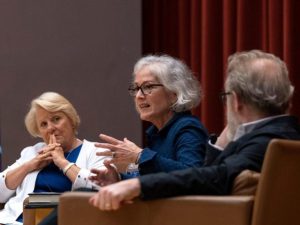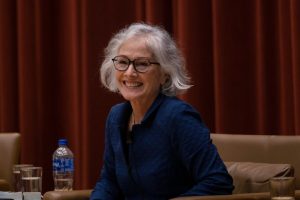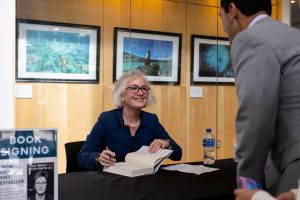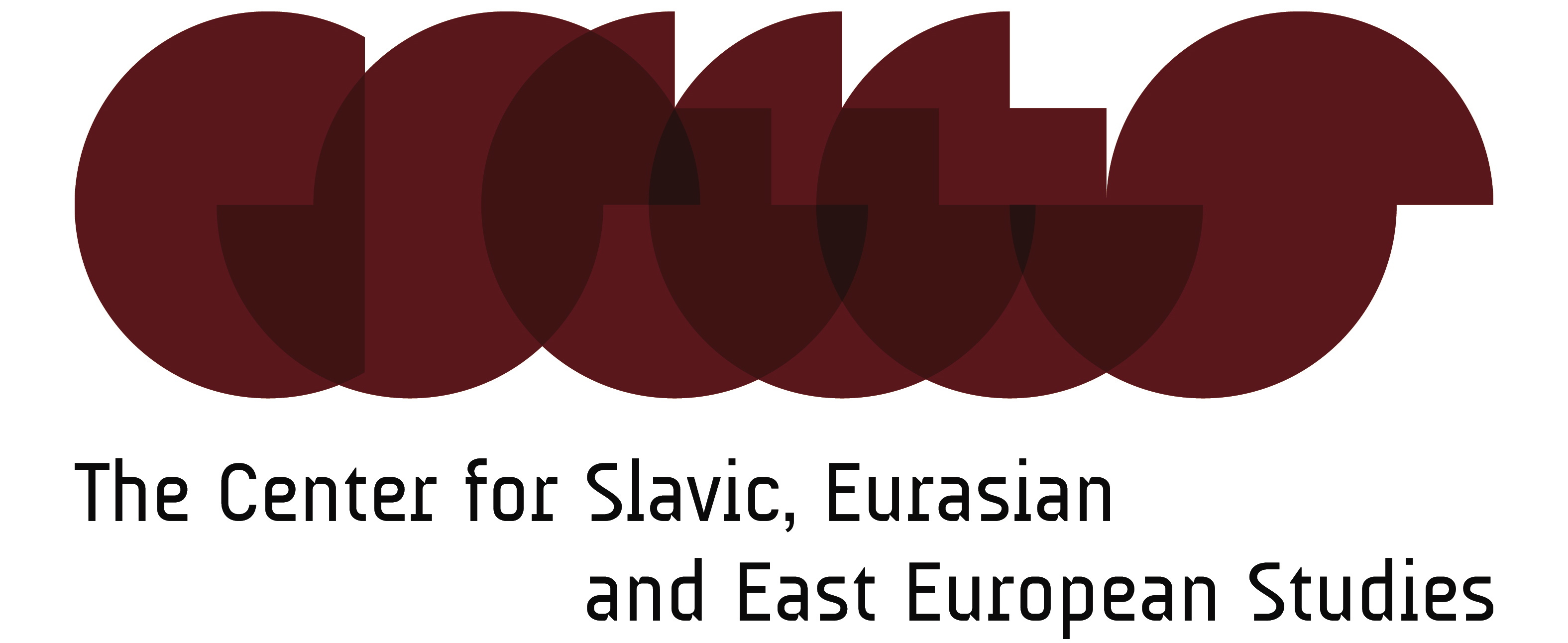
Diplomacy matters and so does who conducts it. These were the themes of the April 21 talk by Marie Yovanovitch, the former U.S. ambassador to Ukraine, who spoke as part of UNC Global’s Diplomacy Week 2022.
Those messages echoed “Lessons from the Edge,” her new memoir.
“I’m hoping that through those stories, people will learn more about the foreign service, about the State Department and about why diplomacy is so important to every American,” Yovanovitch said at the beginning of the hybrid event. About 130 people attended in person at the Mandela Auditorium at the FedEx Global Education Center, with another 170 joining online.
Yovanovitch decided to write the book after her high-profile departure from the State Department in 2020, following “the worst year of my life, professionally and personally.”
Yovanovitch was recalled from her post in Ukraine in May 2019 by then-President Donald Trump. In November 2019, she publicly testified in Trump’s first impeachment hearing, an inquiry into his attempts to pressure Ukraine officials to investigate political rival Joe Biden.

Her 33-year diplomatic career included service as U.S. ambassador to Armenia and Kyrgyzstan, as well as assignments in Mogadishu, London and Moscow. She is now a senior fellow at the Carnegie Endowment for International Peace in Washington, D.C.
In addition to telling her own story, Yovanovitch wanted to use her book to explain why she thinks diplomacy and democracy matter. The United States encourages the spread of democracy for two reasons, Yovanovitch said: It’s good for other countries and it’s good for us.
“Democracy is the worst system in the world — except for all the others,” she said, paraphrasing Winston Churchill. “Democracy has made more people in the world safer, more prosperous and more free than any other system. Democracies make better partners for the United States.”
Democracy is also important to her personally. She was born in Canada to parents who had fled both communist Soviet Union and Nazi Germany. The family moved to Connecticut when she was 3, and she became a naturalized American citizen at 18.
“When they found a home in the United States, they were so grateful,” she said of her parents. Both teachers, they instilled in her a concept of service. “To be American by choice — we were so lucky. And because we were so lucky, we had to give back.”
Putin’s aggression
After her opening remarks, Yovanovitch fielded questions from the audience and event co-hosts Barbara Stephenson, vice provost for global affairs and former U.S. ambassador, and Graeme Robertson, professor of political science in the College of Arts & Sciences and director of the Center for Slavic, Eurasian and East European Studies.
Many of the questions dealt with the war in Ukraine. She was adamant in her support for a policy that defends Ukraine from Russian aggression.
“There are two reasons Ukraine must prevail. First of all, it’s the right thing to do. It’s a democracy that’s not threatening Russia, and we cannot allow an autocrat to just grab a country and go,” she said, pausing momentarily for the audience’s spontaneous applause.
“But it also directly affects our national security, because if Russia is successful in Ukraine, Russia will keep on going,” she continued. Russian President Vladimir Putin “has told us that he wants to bring other countries of the former Soviet Union back into the fold. I think we should believe him, given his track record.”
She pushed back on the idea of the war being “preventable,” squarely placing the responsibility for the situation on Russia. “There is one aggressor here. It is Putin.”
She urged U.S. support for Ukraine that is generous, creative and speedy. “The assistance needs to be there now. In two months, it’s going to be too late,” Yovanovitch said. “It’s risky to keep on helping Ukraine, but there is also grave risk in not doing enough.”
Women in diplomacy

Yovanovitch also talked about her early days as one of the few women in the State Department. Of necessity, her first role models were men, but she learned a lesson from their very different, but successful, professional styles. “I didn’t need to be a little man to succeed. I could be myself,” she said.
Setting aside “obvious examples of sexual harassment,” challenges facing women diplomats include discrimination in assignments and having to handle most household moving and childcare concerns.
Even the State Department restrooms make women feel like outsiders, she pointed out.
“The State Department was a male bastion for decades and decades. And at some point, the interlopers came in. But the bathrooms were never renovated, and many of the ladies’ rooms at the State Department have urinals to this day. What kind of message does that send?” Yovanovitch asked.
Women have made inroads in the foreign service, including Clinton-era Secretary of State Madeleine Albright (the first woman to hold the post) and the current (and first female) Deputy Secretary of State Wendy R. Sherman, she said.
“We always remark upon that, as in, ‘My goodness, we’ve got women at the top.’ The day when we’re not remarking on that, that’s when we will have actually arrived,” she said to audience applause.
– Susan Hudson, The Well, published on April 26, 2022 (source). Watch the discussion here.

